In the bustling border town of Muse, located on the China-Myanmar border, long lines of people clutching bags and belongings can be seen stretching along the road. Some are seated while others stand, creating a scene of bustling activity.
In the middle of this crowd, you can hear people talking in many different languages.
This lively scene unfolds at the Nan Daw Post and Sin Phyu Post, two border crossing points to China. The posts officially reopened on September 4th, prompting a surge of people eager to apply for a Temporary Border Pass (TBP), a single-entry into China, explaining the large queues and the rush of people at the border posts.
In the past, only those with identification cards bearing the number 13/ (indicating they were from Shan State) were allowed to apply for these Temporary Border Passes. However, now, people from all parts of the country, representing various regions and states, are eligible to apply for the permit.
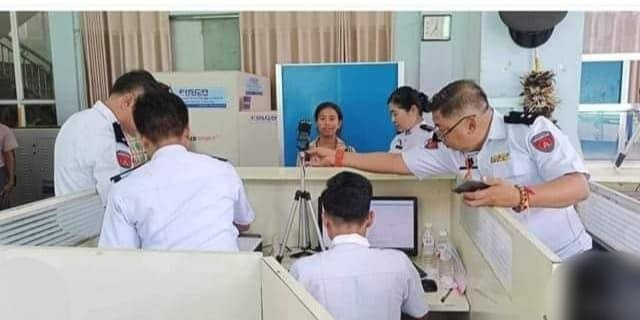
“Some folks have been waiting in line since last night, and many haven’t had a chance to eat yet,” mentioned Sai Soe (not a real name), who had been standing in the queue.
The border posts to China had been closed since the start of the Covid-19 outbreak. Since the posts were officially reopened for the very first time in Sep 2023, many people are queuing up to apply for the permit to enter China for work.
The border posts can process between 60 to 70 individual applications for a one-time use Temporary Border Pass. Within 14 hours, approximately one thousand people receive their permits.
Sai Soe pointed out the challenges people endure, saying, “There are no public toilets. People have to stand in line under the sun and rain, without any shelters or roofs. Since there are no public restrooms, even if people need to use the bathroom, they have to hold it because they fear losing their spot in the queue.”
Because there are no public bathrooms near the permit area, people are figuring things out on their own. Some are attempting to use restrooms in nearby restaurants.
Applying for the TBP normally costs only 2,000 MMK per person. However, there’s an informal system in place, possibly involving bribes. Those in urgent need of the pass can pay extra to jump the queue or move to the front of the line.
“Depending on how urgent it is and where you want to be in the queue, people pay anywhere from 20,000 MMK. On the first day, it was just 5,000 MMK, but later it increased to 10,000-20,000 MMK to secure a spot in the queue. If you aim for the very front of the line, you might have to pay around 100,000 MMK,” Sai Soe revealed.
Among the long queue of thousands of people, those who manage to secure a place at the front of the line are selling their spots for prices ranging from 20,000 to 100,000 MMK.
Sometimes although people pay to get to the frontline in the queue there is also Even if people pay to be at the front of the queue, there’s no guarantee within the system. If someone leaves their spot in the line to use the bathroom or eat, they could lose their place as soon as they step away.
That’s why those planning to queue up for the Temporary Border Pass are advised to bring enough food and water, a chair, and other necessities with them.
The Temporary Border Pass (TBP), which is blue in color, allows individuals to travel only up to Shweli town, an adjacent border town in China, across from Muse on the Myanmar side. They are permitted to stay for 6 nights and 7 days, but working is not allowed.
“The lack of jobs has become a major problem in the country. Unemployment is on the rise, and at the same time, the prices of goods are increasing. In this tough situation, it’s not sustainable for people to earn only about 1.5 lakhs or 2 lakhs (around 70-100 USD per month),” said Maung Htet (not his real name).
The coup, which triggered nationwide armed conflict and a precarious political situation, has resulted in higher commodity prices, a shortage of job opportunities, and reduced incomes. This has forced many people to leave the country in search of work opportunities for survival.
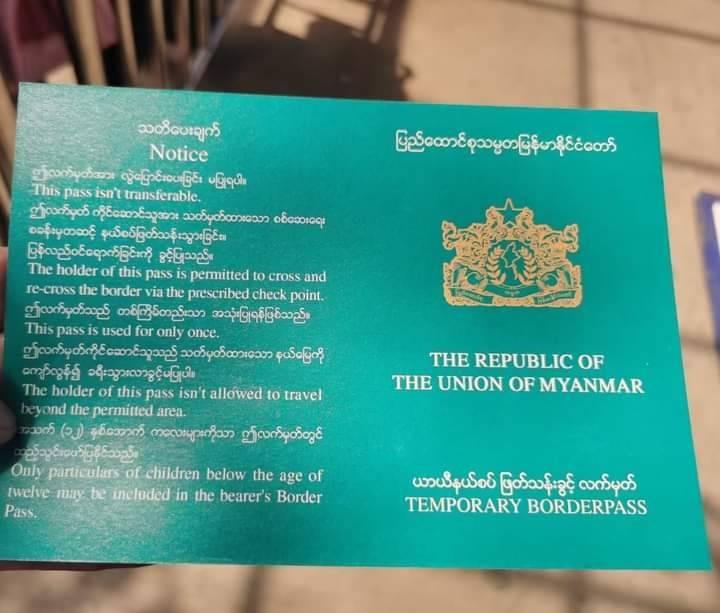
The majority of those applying for the Temporary Border Pass (TBP) do so with the hope of finding employment in China. Driven by this goal, they come prepared, often bringing rain-cover sheets and mattresses to wait overnight for the pass application.
“After obtaining the one-time-use TBP, they work on the China side, especially in places like Shweli (Ruli) and Kyekaung. When their allotted time is almost up (after one week), they have to return to the Myanmar side. Then, they go through the process again: applying for another one-week permit card and returning to China,” explained Maung Htet, describing the typical procedure followed by most applicants.
Before the military coup, Muse town was mainly bustling with trucks transporting goods for trade. However, in the current post-coup situation, it’s the first time people have seen such a large number of individuals applying for the Temporary Border Pass, noted Maung Htet.
With the crowd being incredibly dense and the waiting times quite long, a worrisome incident took place on September 6th. At the Sin Phyu Post, a man lost consciousness and fell, injuring his head, as reported by a volunteer member of a local social rescue association.
Since the Temporary Border Pass (TBP) does not legally permit people to work and only allows a stay of up to 7 days (6 nights), some individuals end up getting arrested for not extending their permit or for working illegally. Consequently, they face deportation back to Myanmar.
“Now the country is regressing. We are not making progress but going backward,” said Maung Htet.
As long as this political turmoil and conflict continue, commodity prices will continue to rise, and the issue of unemployment will persist. As a result, people will have no option but to continue seeking opportunities in other countries, through both legal and illegal means, in their struggle for survival.





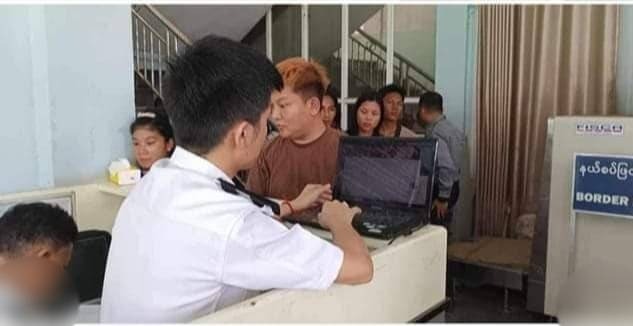
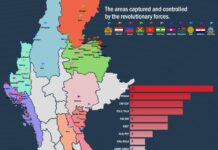
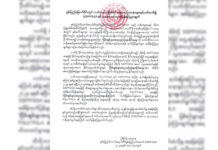
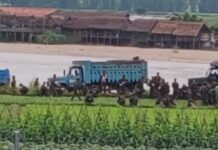
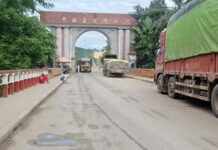
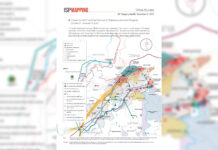






Leave a Comments